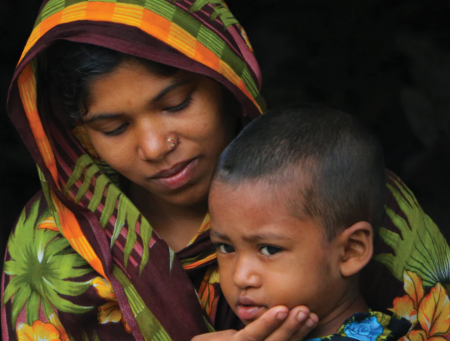Multi-dimensional well-being associated with economic dependence on ecosystem services in deltaic social-ecological systems of Bangladesh

Adams et al. 2020
This paper investigates the relationship between ecosystem services and poverty in the south and south-west coastal zone of Bangladesh. To account for the complex nature of poverty, the authors used two different poverty measures: material poverty (inability of a household to meet the cost of basic needs), and life satisfaction (head of household reporting a life satisfaction below 4/10). The authors found evidence that ecosystem service provision was associated with a lower incidence of poverty: contribution of ecosystem services to income was linked to less material poverty, and a lower proportion of household heads reporting dissatisfaction. The variable with the strongest negative relationship with poverty was land ownership – households with more land were less likely to experience poverty. Since land provides ecosystem services, this is consistent with natural systems supporting well-being.
Although environmental shocks, such as a floods and droughts, are known to cause households to fall into poverty, this study found that experiencing an environmental shock in the last 4 month decreased the chance of material poverty. The authors suggest that this could be explained by the fact that people who are more likely to experience environmental shocks are also those with greater access to ecosystem services.
People living in saltwater shrimp farming areas were the most likely to be dissatisfied with their living conditions, whilst the probability of dissatisfaction was lowest in riverine areas. This is perhaps counterintuitive, since shrimp farming is a lucrative activity, whilst riverine areas are some of the most marginalised in the country. However, shrimp farming has degraded ecosystems, undermining subsistence farming, and many people have been displaced due to the lack of agricultural jobs. The authors also posit that the shrimp farms have altered the landscape such that cultural ecosystem services have been eroded, potentially negatively impacting people’s sense of satisfaction. The riverine areas, in contrast, may have high satisfaction due to the people there being used to adapting to an environment which is in rapid flux; however, due to their marginal existence, they may also be less aware of the services and rights they are missing out on.
Read the paper here




